Our Work
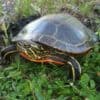 |
Building a More Inclusive Chapter: Priority Action Items Identified from our 2021 Member SurveyThe Minnesota Chapter’s DEI committee saw the need for diversity, equity, and inclusion (DEI) efforts within our chapter but recognized we had limited resources at hand to prioritize our work. This survey is a first step towards that task, and outlines a roadmap of tangible priority action items (both general and conference specific) to help guide our work over the next few years to become a more inclusive chapter of The Wildlife Society.
|
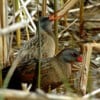 |
Position StatementsThe Minnesota Chapter prepares position statements to address conservation issues that affect wildlife and habitat in Minnesota. The goals of these statements are to share the expertise of the wildlife professionals within our organization, to promote awareness of conservation issues, and to identify science-based recommendations for issues related to wildlife conservation.
|
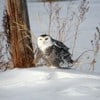 |
Non-Toxic Working GroupThe Minnesota Chapter Non-Toxic Working Group works to reduce the effects of lead ammunition and fishing tackle on wildlife in Minnesota. The group is hosting a series of Copper Bullet Demonstrations across the state to give hunters hands-on experience with copper ammunition. To learn more visit the Non-Toxic Working Group webpage.
|
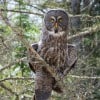 |
Celebrating Our Wildlife Conservation Heritage – C.O.W.C.H.The Minnesota Chapter is working with TWS (main/international) on the COWCH project to interview influential wildlife biologists, educators, managers, and other pioneers who have made a significant contribution to wildlife conservation on a county, state, or national level. The COWCH project was established to document the history and evolution of our profession by interviewing the people who were around when it all started. Visit the MN COWCH webpage for more information!
|
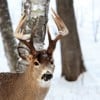 |
Suggested Book ListMembers of the Minnesota Chapter compiled a list of recommended books related to wildlife, conservation, and natural resources. Additions are welcome!
|


